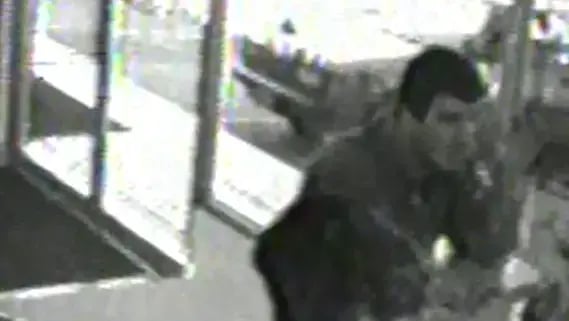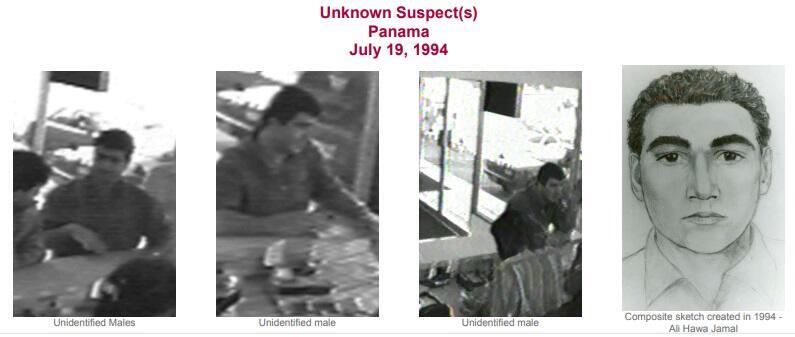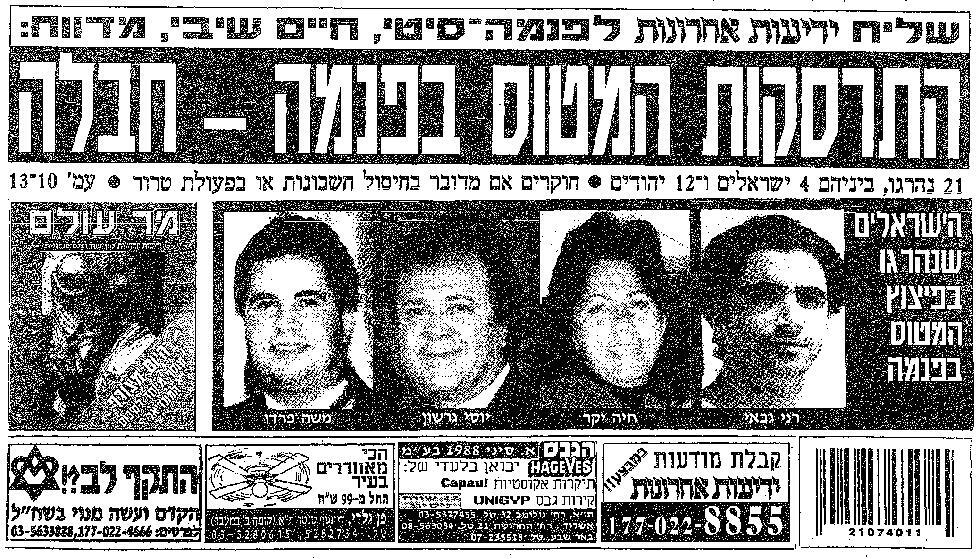Getting your Trinity Audio player ready...
Thirty years after a mysterious midair explosion killed four Israelis, the United States has announced a $5 million reward for any information that could lead to an arrest or conviction in the bombing of Alas Chiricanas Flight 00901, which officials believe was carried out by Hezbollah.
On July 19, 1994, Alas Chiricanas Flight 00901 took off from Colón Airport in Panama, headed for Panama City. The routine 15-minute flight soon entered the annals of aviation's greatest unsolved mysteries.
The small plane was carrying 21 passengers, most from the local Jewish community, including four Israeli citizens—Rani Gabay, Jaica Rascovsky Yaker, Joseph Gershon and Moshe Pardo. Just minutes after takeoff, a powerful explosion ripped through the plane, tearing the metal shell of the aircraft over the Panamanian jungle and killing everyone on board.
Aviation investigators quickly concluded that the blast was caused by a bomb, but the circumstances surrounding the bombing remain unknown. Many believed it was a targeted terror attack against the Jewish community, especially given the timing: just one day earlier, an attack on the Jewish community center in Buenos Aires killed 85 people and injured more than 300. The Argentine attack, later classified as a Hezbollah-led terror act, left a deep scar on the Jewish community in Argentina and worldwide.
The close timing of the two events led to suspicions that they were coordinated attacks by the same group, prompting intelligence agencies and relevant governments, including Israel, to pursue justice. Days after the attacks, a Lebanon-based group calling itself "Ansar Allah" claimed responsibility. U.S. authorities later identified the group as a Hezbollah alias. The prime suspect was Ali Hawa Jamal, the only passenger whose body was never claimed. U.S. intelligence, which joined the investigation after three Americans were confirmed among the dead, later found evidence linking Jamal to the bomb.
According to a Panamanian government report, Jamal had scouted the flight path and noted it frequently carried Jewish passengers. He allegedly carried out the attack after several trips, during which he tested the security measures. After the bombing, Panamanian authorities reported that they had identified a local Hezbollah terror cell suspected of orchestrating the attack but were unable to make any arrests.
In 2018, 24 years after the explosion, then-Panamanian President Juan Carlos Varela called for a reopening of the investigation based on new information from Israeli intelligence, which he said confirmed the event as a terrorist attack. Varela also asked Israel and the FBI to aid in the effort. He noted that Prime Minister Benjamin Netanyahu had written to him, saying, "I lost my roommate and a senior member of the Jewish community in Panama to a Hezbollah terrorist attack."
Now, the U.S. has renewed international efforts to seek justice with its generous reward, hoping to bring those responsible to trial. The FBI, whose announcement was also released in Hebrew, included photos of three men believed to have assisted Jamal. According to the FBI, the suspects were known to travel among Colombia, Venezuela, Costa Rica and Lebanon and were in contact with known arms smugglers.
The American investigation also revealed that, before the attack, a man believed to be Jamal used a stolen U.S. credit card to rent a car in Panama City. The next day, he contacted the agency again to rent a second vehicle, a 4x4 jeep. Both rentals were paid for with the stolen credit card, and the vehicles were later found abandoned near the airport. The FBI believes that the same man may have used the credit card to purchase a two-way Motorola phone system, which Jamal was later seen carrying aboard the flight.
Family members of the victims, many of whom have no grave to visit, welcomed the renewed U.S. efforts with hope and gratitude. Anna Karina Smith-Kane, granddaughter of one of the victims, expressed thanks to the U.S. government, saying, "This is a powerful message that our tragedy has not been forgotten. It’s a day engraved in our memory as an ongoing pain—and the reward reminds us that the fight for justice continues.”
Get the Ynetnews app on your smartphone:





